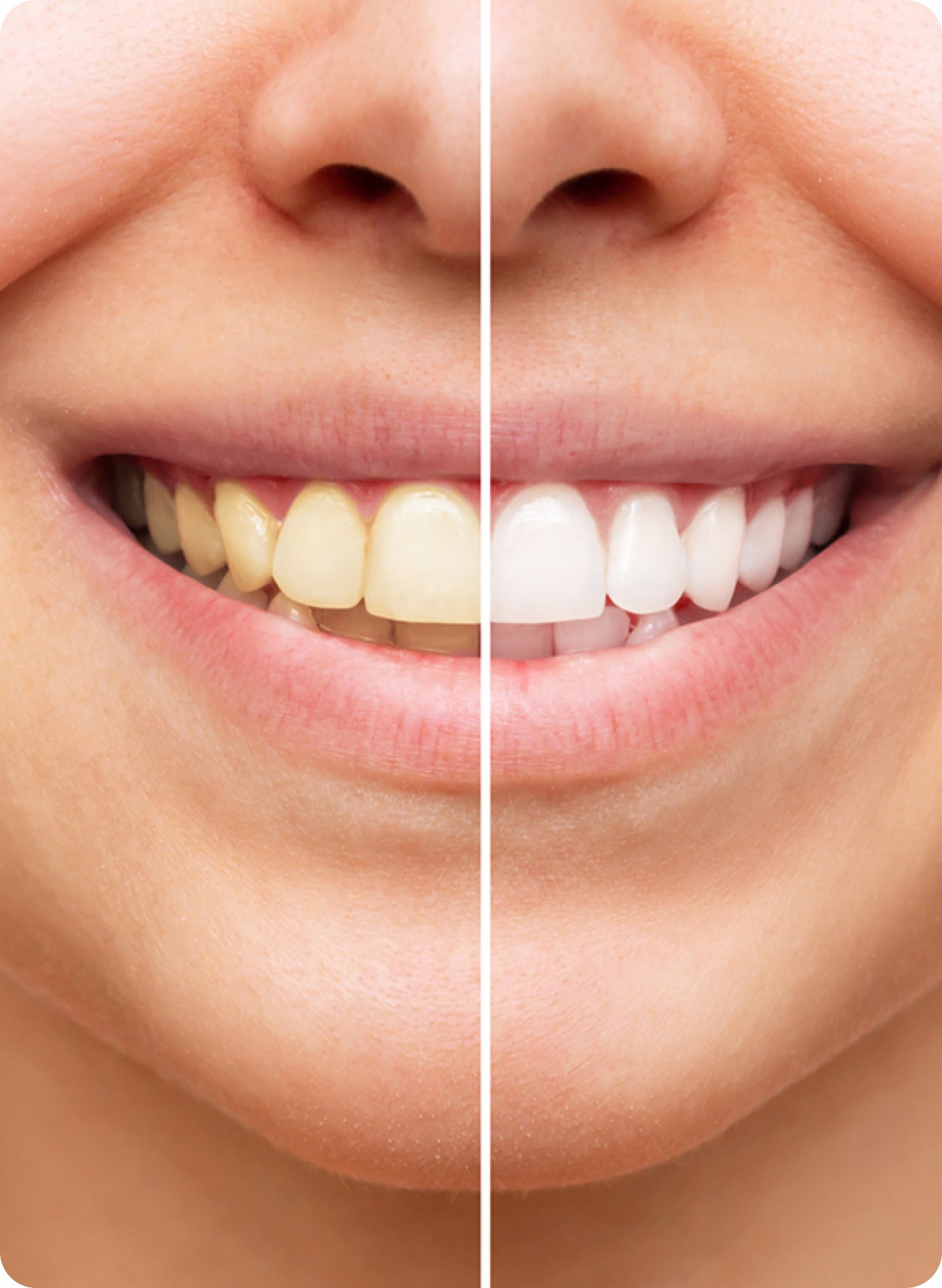Last updated 09.29.2025
8 signs that you may need dental implants
Dental implants: long-term solution for missing teeth, infected teeth, or dentures/bridges that no longer stay secure.

Missing or damaged teeth can significantly impact your daily life, affecting everything from your ability to eat comfortably to your confidence when you smile. Dental implants offer a durable, long‑term solution that can restore both function and appearance. If you’re wondering whether dental implants are right for you, recognizing the key signs can help guide your decision.
At Aspen Dental, our experienced care team understands that choosing dental implants is an important decision. These 8 signs indicate you might be a good candidate for dental implant treatment, helping you take the first step toward regaining your oral health and confidence.
You have one or more missing teeth
Missing teeth create more problems than just gaps in your smile. When you lose even a single tooth, the surrounding teeth begin to shift, which can affect your bite and make remaining teeth harder to clean. Over time, this can lead to additional dental issues.
Dental implants provide the most comprehensive solution for missing teeth because they replace both the root and the crown. Unlike dentures or bridges, implants don’t rely on adjacent teeth for support, helping preserve the health of your existing teeth. The titanium post integrates with your jawbone through osseointegration, creating a stable foundation that can last for decades with proper care.
When people compare options, cost often comes up. Implants are made to last, and they have a long‑term success rate of about 98%. That durability is a big part of their overall value. Aspen Dental offers a range of financing options through 3rd-party lenders to help make care accessible, with 99% approvals when patients apply through those lenders.
If you're missing multiple teeth, your care team can walk you through options ranging from single tooth implants to implant‑supported bridges or even full arch replacements—based on your specific needs and jaw structure.
You have infected teeth
Severely infected teeth that cannot be saved through root canal therapy or other restorative care may require extraction. When extraction is necessary, implants offer a natural‑looking replacement that helps maintain your jaw structure and bite function.
Chronic tooth infections can spread to surrounding tissues and affect overall health if left untreated. Signs include persistent pain, swelling, fever and a bad taste or odor in your mouth. If a tooth can’t be saved, planning for implant placement as part of your treatment can help minimize bone loss and reduce future procedures. If you’re also experiencing ongoing bad breath, see our guidance in the patient resource center for what it can mean and how to treat it.
After tooth extraction, the implant process helps prevent the bone deterioration that naturally occurs when tooth roots are missing. Preserving jawbone density supports facial structure and improves the chance of a successful implant outcome. Your Aspen Dental team will evaluate the site to determine the best timing for implant placement, which can sometimes be the same day as your extraction.
You have loose dentures
Loose, uncomfortable dentures are a common complaint. Traditional dentures rest on your gums and rely on suction and adhesives for stability. As your jawbone naturally changes over time, dentures can become less secure.
Implant‑supported dentures eliminate day‑to‑day slipping. Anchored to strategically placed implants, they provide a secure, comfortable fit that won’t shift while eating or speaking. This solution combines the coverage of dentures with the stability implants provide.
Aspen Dental offers both removable implant dentures and fixed implant options, including fixed full‑arch solutions, so you can choose what best fits your lifestyle and budget.
You have a loose bridge
Dental bridges typically last 5–15 years. A bridge can loosen due to wear, changes in your bite, or decay in the supporting teeth.
When a bridge fails, implants often provide a better long‑term option. Rather than grinding down healthy teeth to create new anchors, implants preserve natural tooth structure while delivering excellent stability and longevity. In many cases, multiple implants can support a fixed bridge without involving healthy adjacent teeth.
Implants don’t develop cavities like natural teeth—a key reason bridges sometimes fail. Combined with their longevity, implants are a strong long‑term investment in your oral health.
Your teeth are broken or severely cracked
Trauma, grinding or large restorations can leave teeth too damaged to repair. When cracks extend below the gumline or the remaining structure is insufficient extraction and replacement often provide the most predictable outcome.
Attempting to save a severely damaged tooth with a crown or other restoration may only delay the need for extraction. Your dentist will evaluate crack location, extent of damage and bone health to determine the best plan.
Implants perform well in these situations because they remove the risk of future fractures and are designed to handle normal chewing forces while maintaining a natural look. Modern techniques allow for excellent aesthetic results in both front and back teeth.
If multiple teeth are involved, a full‑arch implant approach may be the most efficient path—replacing an entire upper or lower arch of teeth with 4–6 strategically placed implants and restoring function in fewer visits.
You have visible changes in your jaw structure
Missing teeth can lead to jawbone loss, which may change facial appearance—such as a sunken look around the mouth, increased wrinkles or loss of facial height.
Dental implants are the only tooth‑replacement option that helps prevent further bone loss by providing the stimulation a natural tooth root would. Your dentist may also discuss supportive procedures, like bone grafting when needed to maintain healthy structure.
You have difficulty eating
Loose dentures, missing teeth or painful teeth can make chewing difficult, which may lead you to avoid nutritious foods like fresh fruits, vegetables and proteins.
Implants restore near‑natural chewing function. Their stable foundation distributes chewing forces in a way that feels similar to healthy teeth, which supports better nutrition and overall health. Many patients also feel more at ease eating in social settings once their teeth feel secure.
You're insecure about your smile
Missing, damaged or loose teeth can affect confidence at work and in everyday life.
Implants provide the most natural‑looking tooth replacement available. Crowns are custom designed to match your surrounding teeth in color, shape and size, so your smile looks and feels like you.
Unlike removable dentures, implants won’t slip or make clicking sounds during meals or conversations. Many patients report feeling more confident and socially engaged after completing implant care.
Get dental implants from Aspen Dental
Choosing the right provider matters. Our experienced care team uses digital imaging and 3D scanning to evaluate your anatomy and build a personalized plan—whether you need a single tooth replaced or a full‑arch solution. We keep the process clear and supportive from consultation through follow‑up.
Implant cost is a common concern. We provide transparent pricing and multiple financing options through 3rd-party lenders. 99% of applicants are approved and we’ll help you explore a plan that fits your budget.
Frequently asked questions
How much do dental implants cost and what financing options are available?
Implant costs vary based on your treatment plan and the number and type of implants. We’re upfront about pricing and can walk you through options at your first consultation.
Are dental implants painful and what should I expect during recovery?
Implant placement is typically well‑tolerated with local anesthesia. Most people describe pressure rather than pain during the procedure. Your care team will share simple steps to stay comfortable and support healing and will check in as you recover.
Can I get dental implants if I have gum disease or other dental problems?
Active gum disease needs to be treated before implant placement. Your Aspen Dental team will assess your gum and bone health and may recommend hygiene services such as periodontal therapy. Some cases require additional steps, like bone grafting, before moving forward.
How long do dental implants last and what is their success rate?
Dental implants have a 98% success rate and can last 25 years or longer with proper care. The implant post integrates with your jawbone, while the crown may need replacement over time due to normal wear. Longevity depends on good oral hygiene, regular dental check-ups and following your care team’s guidance.



